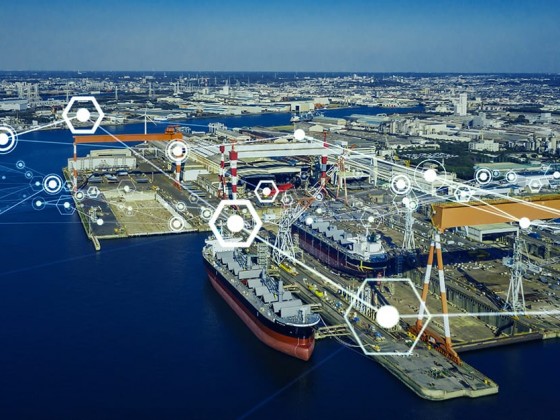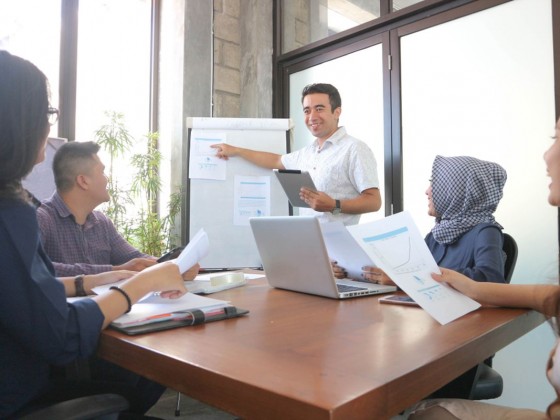by | Tan Yew Sing, Council Member, National Unity,Consultative Council and Founder & President of Inti International College.
Malaysia is a blessed country with a multi-cultural, multi-ethnic and multi-religious population that has become her strength and most valuable asset. From a global economic perspective, all the emerging economy markets such as India, China and Indonesia are well represented by the three major races in the country that share the same origin or root of cultures and languages.
Malaysia has positioned herself at a very strategic position, but it is unfortunate when it comes to the national unity as it has been far neglected. The spirit of the founding documents and history of nation is not being referred by the society, especially among the younger generation. At this juncture, such situation could be considered as the moment of “make or break” where the country’s global competitiveness may be affected by the disunity and a polarized citizen. Therefore, there is a need to create a national identity that portrays the country as a ‘united nation’ where there is a perfect unity between people of various races/ethnics, religions and cultures.
National Identity
National identity is the ability of a nation to identify one common vision that can be expressed by different religions, races and languages because the global outlook and trend suggest that the more diversify the population of a nation the stronger it will be. However, the nation needs to acknowledge that racialism is the mother of all evil. That is why it is important for the leaders of the country identify themselves firstly as Malaysian, then follow by his race background. Every leader must remember that: ‘You are a Malaysian and you owe your living to the country, the country that nurtures you’.
There are quarters of the citizen that seems to be unpatriotic due to their misconceived belief about the unfair treatments of various races that are embedded in various government policies. This is a bad development for the country. The situation was different in those days when Malaysian students studying overseas thought that it was important to return home to the country and serve the nation. The concept of tanah air needs to be imparted among the younger generation of the country.
The founding documents of the country, although there are different interpretations about them, are still important and relevant as it was through them that the different races came together. The challenge now is how to translate those documents into workable policies that will enhance unity.
The founding fathers of Malaysia have shown extraordinary leadership qualities in terms of uplifting the capabilities of the Malays as well as those from other races by identifying and utilizing their strengths without practicing favoritism. History has proven that their leadership has given many benefits to the Rakyat through the establishment of entities such as FELDA, RISDA, FELCRA, FAMA and many more that has allowed the country to grow economically.
Current Political Scenarios and Governance
The current scenario of having a two party system is a good development of the local political landscape. This is a proof that the democracy practiced in the country is moving towards maturity that will subsequently encourage more check and balance. The past years election cycle has allowed maturity in terms of political structure of the country. However, globalization and media have changed, and how society adapts to these changes will shape the future of the political landscape of the country.
The scenario that Malaysia is facing may be parallel to the analogy as the pain of a mother giving birth to a child. The pain experienced by her will be temporary, but the joy of bringing a life into the world is beyond description. However, there is a need for leaders from the two major political coalitions to further communicate and discuss with each other.
In context of race relation, the Chinese and Indians in Malaysia have more common interest with the Malays compared to those people in China or India. Therefore, the issues highlighted and discussed by and between the two political coalitions should be that of common interest. Issues that are sensitive should be avoided until a better understanding by all parties is achieved.
Language and Culture
Malaysian needs to be united by having one language, which is Bahasa Malaysia, as the national language. It was never an issue as Bahasa Malaysia has always been the medium of communication amongst the rakyat of this country, and it is the lingua franca of the region. Knowing one’s mother tongue and, at the same time, capable to interact in multiple languages gives advantage for citizen to understand and appreciate each other.
Language should not be an issue in the effort to unite the nation. It is an only issue that is being cooked-up by certain irresponsible quarters. There must be a sincere approach in promoting the national language between the government and the private sector.
The mastery of Bahasa Malaysia has never been a hindrance to racial or ethnic cultures. We have seen many Chinese and Indians who are very fluent in Bahasa Malaysia but still master their own mother tongues and practice their own religions and cultures. Malaysians have been known to respect, share and enjoy each other’s cultural heritage and practices.
Economic Development
Urbanization resulted in increased urban population. This, together with the general growth of population, has expanded the society economic activity. However, urbanization and growth of population has its downside too – creating problems such as unemployment, housing, health and crime. These problems could be condoned if enough economic activities are created for the people.
In India, there are small banks that help the poor to enhance their economic activity, but in Malaysia the banking sector is moving towards developing mega banks that do not favour helping of the needy, especially those in small business activities. There is a need to re-examine the whole economic policy of the country. The New Economic Model proposed by the government requires further crystallization in terms of implementation and execution. The selection of people that are capable to execute the model is a critical factor that will determine its success.
Ideological
Malaysia is fortunate that it has no serious ideological diffrences. All political leaders in the country practice a common ideology. The only factor that hurts the society as a whole is language and religion. The country needs to manage these two areas by giving space for people to study, understand and respect the constitution. The government should provide guidelines on the principles of our founding fathers and the positions of Islam and Malay Rulers in the constitution.
National Unity
Perhaps we can learn from our brothers and sisters in Sabah and Sarawak about unity. Most of the people there avoid talking about diffrences in race and religion. They build their unity by talking about common identity of the people.
Unity is actually one of the major hindrances for Malaysia to drive forward and achieve the status of a fully developed nation by 2020. The other is human resource mobility. They are inter-related. Unsolved unity issue such as racial relations hinders our human capital from returning and serving the country.
To address the problem of racialism the government machinery should be strengthened by providing more resources and funding, apart from having an act to govern race relations. Addressing racialism is almost as important as fihting corruption. If corruption may affct the cost of doing business in the country, apart from other socio-economy implication; racialism may shake the foundation of the country.
All is not over and the future of unity is not bleak. History has proven people of all races have lived together in peace and harmony in this country. That is our national identity. But racial problems and diffrences will never cease to exist. We should always be alert and wise to handle and condone them.










